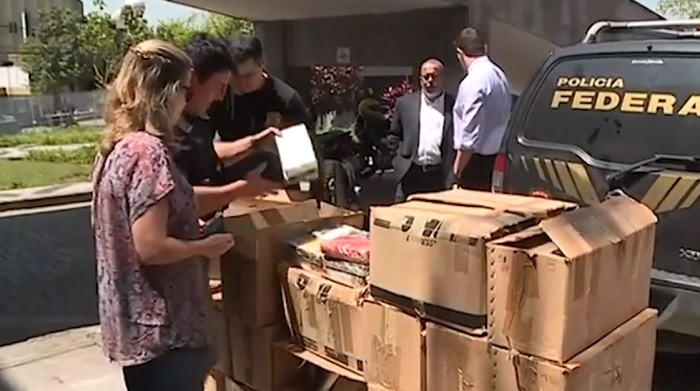The Dark Side of Israel’s Drug Trade
It may come as a surprise to some that around 75% of the ecstasy sold in the United States is imported from Israel. Despite Israel’s reputation for high security, advanced technology, and constant surveillance, the country has become a significant player in the global drug trade.
The Cocaine Trend in Israel
According to United Nations statistics, Israel has seen a significant increase in cocaine trafficking in recent years. This is largely because cocaine is now viewed as a “rich person’s high,” similar to trends in other countries. The price of cocaine has risen sharply, and the supply on the market has become astonishingly large—something hard to believe in a country as security-conscious as Israel.
Importing European Drugs
Cocaine smuggling into Israel reportedly began in the early decades of the 20th century. In 1929, British authorities seized a large shipment of cocaine—about 800 grams—in Jaffa, believed to have been sent from Austria.
A 2003 U.S. State Department report placed Israel at the center of the international ecstasy trade. Most Israeli drug traffickers worked with global networks operating in Russia and Europe. Their methods of smuggling, including using air cargo and international courier services, alarmed U.S. law enforcement. Drugs were hidden in sophisticated compartments, and most shipments reached their destinations undetected. The report noted that Israeli traffickers were technologically savvy and adept at bypassing security protocols.
The U.S. Drug Enforcement Administration (DEA) has also reported that Israeli traffickers are often linked to Antwerp, Belgium—a major exporter of ecstasy to the U.S. Israeli drug lords are believed to have longstanding ties to the Belgian mafia, having previously been involved in smuggling valuable minerals, especially diamonds.
Israeli Organized Crime
Arrests in Israel highlight the unique characteristics of Israeli drug lords. In 2008, Israeli law enforcement dismantled an international drug syndicate, arresting Moshe Elgrably, one of Interpol’s most wanted criminals. Yoram Elal, another major Israeli drug lord, was later arrested in Brazil after selling large quantities of cocaine and ecstasy in the U.S. Elal had close ties to the notorious Abergil crime family—a Moroccan-Jewish organization based in Israel involved in murder, extortion, theft, money laundering, illegal casinos, and drug trafficking. The Abergil family is among the top 40 exporters of drugs to the U.S.
Despite these successes, Israeli authorities have struggled to identify those sending drug shipments into Israel, including from Belgium. For example, in 2006, a shipment of drugs sent anonymously to Ashdod led to no arrests. Another case involved a shipping container filled with bags of coffee that actually concealed hundreds of kilograms of cocaine—again, with no identifying marks or leads.
Current Drug Trade in Israel
Today, Israel primarily acts as a middleman between Europe and the U.S., but the scale of this role is significant. Police reports have linked seized “coffee” shipments to Israeli drug mafias. Shipping containers are a popular method for smuggling, with transport companies charging around $8,000 to move drugs internationally. Traffickers often hire couriers who swallow or conceal drugs inside their bodies.
In 2012, a commercial flight landed at Ben Gurion Airport with a deceased passenger. An autopsy revealed the person died after a condom filled with cocaine burst inside their abdomen.
Ecstasy Trafficking to the U.S.
Alongside cocaine, ecstasy is one of the most popular drugs for resale. Oded Tuito, once considered the leader of Israel’s most notorious mafia group, played a major role in the booming ecstasy trade, impacting lives both in Israel and abroad. In the U.S., New York’s Hasidic Jewish community became involved in the drug business. The ecstasy trade infiltrated public life and disrupted the social norms of New York’s Jewish community.
Tuito reportedly recruited local residents, especially ultra-Orthodox (Hasidic) teenagers, as international drug couriers. His gang used traditional Hasidic attire to smuggle drugs, taking advantage of the fact that such religious garb allowed them to pass unnoticed by DEA officers. Law enforcement admitted this was an “original way to change the typical courier profile.”
U.S. authorities have noted that Israeli drug lords are constantly innovating their methods, including forging ties with Italian crime families believed to control major international drug trafficking hubs. Analysts say Israeli criminal groups were pioneers in the global ecstasy trade, quickly recognizing its profit potential and establishing networks that crossed international borders. Just last year, three Israelis were convicted in New Zealand for drug trafficking after being caught with $2 million worth of ecstasy.
Challenges for Law Enforcement
Combating drug trafficking has never been easy for law enforcement. With over 10 million passengers entering Israel annually through Ben Gurion Airport, it remains a challenge to detect and arrest all traffickers. Budget constraints also hamper the effectiveness of agencies tasked with enforcing drug laws in Israel and abroad. The global war on drugs is proving to be a difficult and costly endeavor, with no quick solutions in sight.
For example, there is a lack of funding for essential operations like real-time monitoring of drug couriers across continents. Nevertheless, Israeli drug enforcement agencies have joined forces with global partners to improve their effectiveness. Israel has established a special task force to combat drug trafficking, operating as a branch of the national police. This unit uses technological innovations to gather intelligence on major criminal organizations, leading to a wave of arrests and greater cooperation among law enforcement agencies, similar to developments in Europe.



